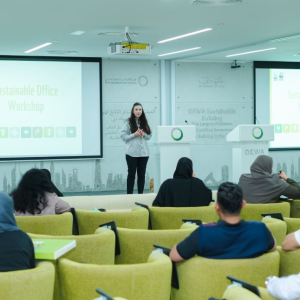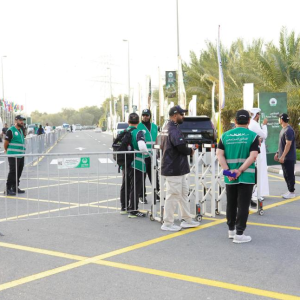A New Era in Tying the Knot
Love stories have often been romantic, filled with traditions, handwritten vows, and fluttering invitations. Yet the world is changing—and so is the way we formalize commitment. In a bold step toward modernization, Abu Dhabi has introduced digital marriage contracts through its native government platform, completely eliminating paperwork and in-person visits. This new “iDo” initiative reimagines weddings in an age of convenience, trust, and tech-enabled transparency.
What once required multiple offices, notarizations, and official stamps can now unfold entirely online. Imagine applying, witnessing, certifying, and authenticating your marriage from the comfort of your home—and often from afar. This is not just a convenience upgrade; it’s a redefinition of how legal unions can be formed in the modern age.
Why It Matters: Beyond Convenience
1. Accessibility Without Boundaries
Before this change, couples had to juggle schedules, arrange travel, and navigate unfamiliar bureaucracies—especially when one partner lived abroad. The digital marriage contract dismantles such barriers. You no longer need to be physically present. This opens doors for expatriates, long-distance partners, and those with mobility constraints to marry without friction.

2. Efficiency and Speed
The traditional marriage process often comes with delays: scheduling appointments, waiting for document approvals, traveling between departments. The new system accelerates all steps: data entry, verification, approvals, and contract issuance happen through connected digital infrastructures. Many marriages may now be completed in just hours rather than days.
3. Trust Through Technology
Digital signatures, encrypted identity verification, system linkages with national databases, and AI checks ensure that the contract is authentic, immutable, and reliable. In collaboration with the Ministry of Foreign Affairs, the system enables digital authentication so that contracts also carry legal weight abroad.

4. Sustainability & Paper Reduction
Removing the need for paper, printing, physical transport, and manual storage contributes to environmental sustainability. It also cuts administrative overhead and reduces the risk of document loss or tampering.
How It Works: From “I Will” to “I Do,” Digitally

Step 1: Application Through the TAMM Platform
The journey begins in TAMM, Abu Dhabi’s unified government services app. The couple, guardian (if needed), and witnesses provide personal details and upload supporting documents.
Step 2: Instant Verification
The system crosschecks users via UAE Pass and links to government databases, including pre-marital health records, identity registries, and civil status records.
Step 3: Review & Approval
Authorities review the submitted documents within the digital system. If everything is in order, they approve the contract electronically.
Step 4: Digital Contract Issuance
Once approved, the system auto-generates a digitally certified marriage contract. The couple receives the contract immediately.
Step 5: Authentication & International Use
The contract can be electronically notarized via the Ministry of Foreign Affairs, ensuring its validity in other jurisdictions. Users can download or share certified versions as needed.
Step 6: Ceremony (Optional Virtual)
Couples can choose a virtual ceremonial link—witnesses, officiants, and participants connect via video. Or, if they prefer, minor in-person ceremonies are still possible, but the administrative side remains fully digital.
Challenges and Considerations
Cultural Sensitivity & Rituals
Marriage in many societies is more than a legal contract—it is a ritual, an emotion, a gathering of families. This system must respect cultural traditions, religious requirements, and personal preferences. Couples who want grand celebrations can still have them; the change is in how the paperwork is handled.
Digital Literacy & Inclusion
Some users may lack experience with apps or online services. Ensuring clear guidance, multilingual support, and assistance will be essential so no one is left behind.
Data Privacy & Security
With sensitive personal and health data involved, the system must maintain ironclad cybersecurity, encryption, and user consent protocols. Trust will be key.
Legal Recognition Abroad
Although the system supports authentication via the Ministry of Foreign Affairs, some countries may still require additional notarization or verification steps. Clear instructions and compatibility are needed for international couples.
Voices Behind the Innovation
Officials leading the charge emphasize that this shift is more than a technology project—it is a human-centered transformation. They speak of granting dignity to life events, reducing frustration, and enabling couples to focus on what truly matters: commitment and connection.
As one official put it: “We are not just digitizing forms; we are preserving trust and emotion in a modern format.” The integration between the Judicial Department and foreign affairs authorities signals deep institutional support as witnessed by their MoU on digital linkage for contract authentication.

Impact on Residents and Global Citizens
For Abu Dhabi residents, this is a leap forward in quality of life. Couples no longer lose hours to bureaucracy. For foreigners wanting to marry in the UAE, the barrier to entry is far lower. Moreover, people who are separated by oceans—or quarantines—can still share a legally binding union without delay.
This may inspire other jurisdictions around the world to reimagine their own marriage systems. If one of the most conceptually traditional institutions can transform digitally, many more could follow.
The Human Element at the Core
At its heart, marriage is deeply personal. The iDo initiative is not meant to replace romance—it supports it. It means less stress, fewer logistical hurdles, and more space for emotional connection. Couples can devote energy to their relationship, the symbolism, the promises—they no longer have to battle paperwork mountains.
Because when love is timeless, why should the administration be dated?
Looking Ahead: Evolution and Expansion
The digital marriage contract may just be the beginning. Officials have hinted at broader plans: from digital divorce services, registering births, wills, and inheritance documents—all as seamless, secure, and humane platforms.
The ultimate goal is a single life-events platform that consolidates key milestones—birth, marriage, death, property, family law—into a harmonized digital experience.
Do follow UAE Stories on Instagram
Read Next – Sharjah Real Estate: Arada Awards $108M Rove Aljada Hotel & Residences Contract












